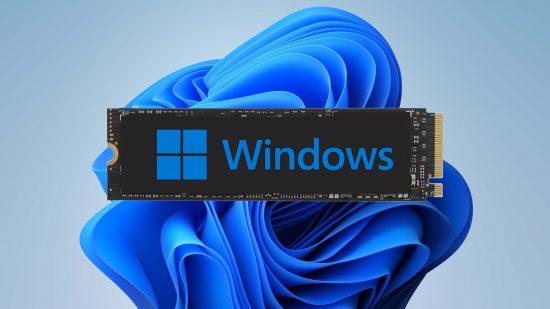Your Windows gaming PC may soon be able to load games up to 40% faster, thanks to Microsoft’s upcoming DirectStorage 1.1 API. Using asset compression, the algorithm benefits modern storage hardware, such as NVMe SSDs, by enabling better performance when loading, with the company claiming the latest version will have better optimisation.
A Microsoft developer blog post says 1.1 will offer an “alternative method” to version 1.0, by moving to GPU compression. The post goes on to say that GPUs are more efficient at “performing repeatable tasks,” and DirectStorage can take advantage of that alongside a storage drive’s bandwidth. In short, gaming PC load times should see a significant improvement, even on the latest AAA games.
There’s also a side-by-side demonstrating how much faster DirectStorage 1.1 is when compared to the current iteration. An image shows two renderings from the same scene, one loaded through CPU compression, and the other through GPU. The result depicts the former loading in 2.36 seconds, while the latter renders in just 0.80 seconds. This means even the best gaming PC should reap the benefits of 1.1. You may be pleased to know that this version will work on both Windows 10 and 11.
In general, it appears to have great potential, as any improvement in loading times is a step in the right direction. Even if you have the best SSD for gaming, you can always stand to shave off a few precious seconds.
Do take the information with a pinch of salt, though. These are Microsoft’s own numbers, so we don’t yet know how well it will perform out in the field. The other thing to consider is that developers need to implement DirectStorage into games themselves, and given that no AAA releases utilise 1.0, it could take a while for the new version to see the light of day.
